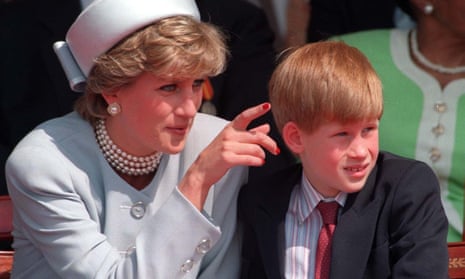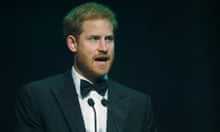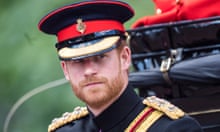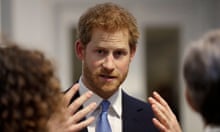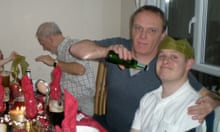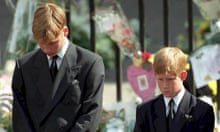Prince Harry has revealed how he sought counselling after coming close to a breakdown following more than 15 years of “not thinking” about the death of his mother.
Harry was 12 years old when Diana, Princess of Wales, was killed in a car crash but said it was not until his late 20s, after two years of “total chaos”, that he processed the grief.
The 32-year-old told the Daily Telegraph: “My way of dealing with it was sticking my head in the sand, refusing to ever think about my mum, because why would that help?
“[I thought] it’s only going to make you sad, it’s not going to bring her back. So from an emotional side, I was like ‘right, don’t ever let your emotions be part of anything’. So I was a typical 20, 25, 28-year-old running around going ‘life is great’, or ‘life is fine’ and that was exactly it.
“And then [I] started to have a few conversations and actually all of a sudden, all of this grief that I have never processed started to come to the forefront and I was like, there is actually a lot of stuff here that I need to deal with.”
He said he shut down his emotions after his mother’s death in 1997 which had “a quite serious effect on not only my personal life but my work as well”.
The prince sought help after his brother, the Duke of Cambridge, told him: “Look, you really need to deal with this. It is not normal to think that nothing has affected you.”
Harry said dealing with grief in the public eye had led to coming “very close to a complete breakdown on numerous occasions”.
He told the paper that boxing “saved” him after he took it up to deal with his aggression, having come close to “punching someone” when he was 28.
Harry was twice deployed to Afghanistan while serving as an army officer for 10 years, but he said his mental health concerns were not related to the conflict. “If you look back to the fact I lost my mum at the age of 12, on a sort of public platform of which it was, and then everything else that happens with being in the spotlight, and this sort of role and the pressures that come with it and then going to Afghanistan and then ... working in the personnel recovery unit with all of the soldiers as well and taking on a lot of their issues.
“Anybody would look at that and go ‘OK, there must be something wrong with you, you can’t be totally normal, there must be something wrong’.”
But he said: “I can safely say it’s not Afghanistan-related. I’m not one of those guys that has had to see my best mate blown up next to me and have to apply a tourniquet to both their legs. Luckily, thank God, I wasn’t one of those people.”
Alongside William and the Duchess of Cambridge, Harry is spearheading the Heads Together campaign which is the 2017 London Marathon’s charity of the year.
Harry was interviewed for a Telegraph podcast by Bryony Gordon, who has spoken about her struggles with bulimia and obsessive compulsive disorder, and is running the 26.2 mile course in London for the mental health campaign.
Harry will be joined by William and Kate to hand out medals to some runners as they cross the finishing line on The Mall after the race, which the royals hope will be the “mental health marathon”.
Asked whether he had ever been to see a “shrink”, he replied: “I’ve done that a couple of times, more than a couple of times, but it’s great.
“Because of the process I have been through over the past two-and-a-half years, I’ve now been able to take my work seriously, been able to take my private life seriously as well, and been able to put blood, sweat and tears into the things that really make a difference and things that I think will make a difference to everybody else.”
